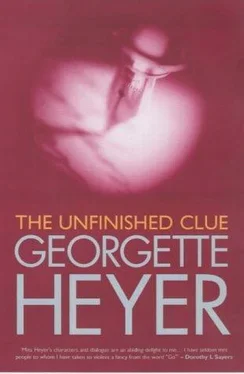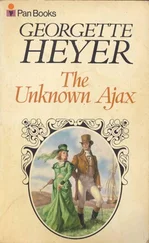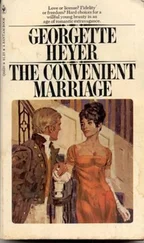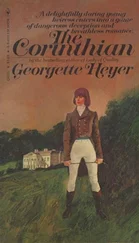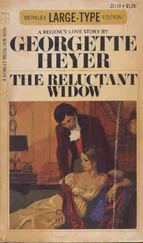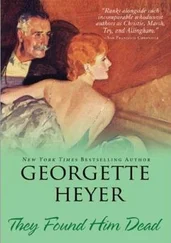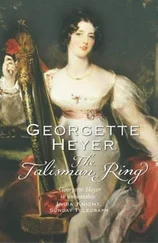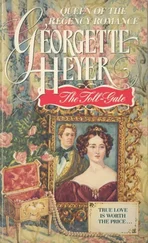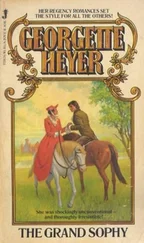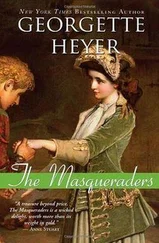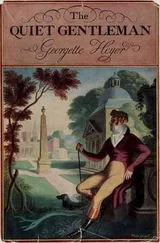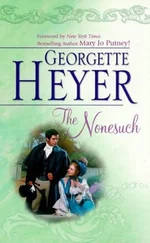"Oh, lord!" sighed Fay, momentarily diverted. "I thought she'd taken up Christian Science?"
"It didn't last. She read a bit in some evening paper about proper dieting, and she's gone all lettucey. Nuts, too. That's why I'm here. There's a filthy beverage you drink for breakfast instead of coffee. I thought not, so I cleared out."
"Well, I do hope she won't make herself ill," said Fay.
"Not she. By the time I get back she'll have got religion, or something, and we shall have grace before meals, but not before lettuces, so to speak. As for her having sense enough to stop you marrying Arthur — well, pull yourself together, Fay!"
Fay smiled rather wanly. "I know. Now, say I made my bed and must lie on it."
"I shouldn't think anyone could possibly lie on any bed you ever made, ducky. Cut loose." "Cut loose?"
Dinah blew smoke rings, one through the other. "Isn't Barkis willing? I thought he was frightfully willing."
Fay coloured. "Yes, but I couldn't. You don't know what you're talking about. I'd sooner die than face the scandal, and the Divorce Court, and all that hatefulness."
"All right," said Dinah equably. "Have it your own way. Do we have tea in this well-run establishment, or are you slimming?"
Fay cast a startled glance at the clock, and sprang up. "Heaven's, it's past four! I must fly or Arthur will have a fit. He can't bear unpunctuality. Are you ready?"
"I'm ready," said Dinah, "but I shall dawdle for ten minutes for the good of Arthur's soul."
She began in a leisurely way, as soon as her sister had left the room, to unpack her dressing-case, and it was quite a quarter of an hour later when she at last prepared to join the tea-party on the terrace. A slight frown puckered her brow. It did not seem to her that the weekend promised well. Obviously Fay was overwrought and in no condition to manage an ill-assorted gathering; while Arthur, who belonged to that class of soldier who believes that much is accomplished by rudeness, was already in a thunderous mood.
Miss Fawcett had never, even at the impressionable age of twenty, succumbed to the General's personality. He was a well-preserved man, with handsome features and hair only slightly grizzled above the temples. He was large, rich, and masterful, and when he chose, he could make himself extremely pleasant. He was convinced of the inferiority of the female, and his way of laughing indulgrently at the foibles of the fair sex induced Fay to imagine that in him she had found the wise, omnipotent hero usually to be discovered only in the pages of romance.
Fay was helpless and malleable, as pretty as a picture drawn in soft pastels, and the General asked her to marry him. He had retired from the army; he wanted to settle down in England. A wife was clearly necessary. Discrepancy of age did not weigh with him: he liked women to be young and pretty and inexperienced.
Nor did it weigh with Mrs. Fawcett. She said that the General was such a distinguished man, and she was quite sure he would be the ideal husband for her little Fay. And since Fay was also sure of it, and neither she nor her mother was likely to pay any heed to the indignant protests of twenty-year-old Dinah, the marriage took place with a good deal of pomp and ceremony, and Fay departed with her Arthur for a honeymoon on the Italian Riviera. She was to discover during the years that followed that a man who had bullied one woman into deserting him and ridden rough-shod over all his inferiors for quite twenty years, was not likely to change his ways thus late in life.
Between him and his sister-in-law there raged a guerrilla warfare which both enjoyed. They disliked one another with equal cordiality. The General said that Dinah was an impudent hussy. Whereas Dinah drove him to the verge of an apoplexy by remarking with an air of naive wonder: "What odd expressions people of your generation do use! I remember my grandfather…'
The explosion which had cut short this reminiscence had made Fay wince and shrink into herself; it produced in Dinah nothing but a kind of bright-eyed interest.
She was quite ready to spar with the General, if he felt like that, which apparently he did, but it sounded, from what Fay had told her, that there would be trouble enough during the week-end already. She strolled downstairs to tea, whistling softly to herself, still dressed in the severely tailored grey flannel coat and skirt which so admirably became her.
The terrace was at the back of the house, facing south, find was reached either by way of the drawing-room or the billiard-room, both of which apartments had several long windows opening on to it. Fay was seated behind a table which seemed almost too frail to support its expensive and ponderous load of silver ware. An enormous silver tray quite covered it, and the embossed teapot, which Fay had picked up, shook in her weak bold.
As Dinah stepped out on to the terrace a big man in rough tweeds got up from his seat and took the teapot from Fay, saying in a deep voice that somehow matched his tweeds: "Let me do that for you. It's too heavy for you to hold."
Dinah recognised Stephen Guest, and smiled. In repose her face had a youthful gravity; her smile dispelled that completely. It was a friendly, infectious smile, crinkling the corners of her eyes. If Dinah smiled you had to smile back, as Stephen Guest did now. His rugged, curiously square face softened. "Hullo, Dinah!" He said, and went back to his task of pouring out the tea for Fay.
A tall and slender young man with sleekly shining black hair, thin lips under a tiny moustache, and quite incredibly immaculate tennis flannels, got up with the grace of muscles under perfect control, and pulled forward another chair. "Ah, Dinah, light of my eyes!" he drawled. "Come and sit beside me, darling, and comfort me."
"Hullo!" said Dinah discouragingly.
There were two other people on the terrace, to whom Fay proceeded to make her sister known. Basil Halliday was a thin man in the late thirties, with a face prematurely lined through ill health. He had very deepset, almost sunken eyes and a way of twitching his brows over them that indicated nerves on edge. His wife Dinah regarded with more interest. Camilla Halliday was a pretty woman. She had corn-coloured hair, shingled and perfectly waved, a pair of shallow blue eyes, and a predatory little mouth sharply outlined by scarlet lipstick. She was lounging in a long chair, a cigarette between her lips, and made no effort to get up. Removing the cigarette with one hand, she extended the other towards Dinah. "Oh, how do you do? Do forgive me, but I'm quite too exhausted to move."
Dinah noticed that the pointed finger-nails were polished lacquer red. She shook hands, and turned to receive her cup and saucer from Fay. "What exhausted you?" she inquired.
Francis Billington-Smith, who had exerted himself to bring a plate of sandwiches to Dinah, raised his brows. "My dear, didn't you hear me ask you to comfort me? I have been ignominiously beaten at tennis. It's what people write letters to the Daily Mirror about. "What is wrong with the Men of Today?" So belittling."
"Oh, but you let me win!" said Camilla, throwing him a glance which Dinah felt to be mechanically provocative.
"Rubbish!" pronounced Sir Arthur loudly. "No stamina in these modern young men. You play a fine game, Camilla. Pleasure to watch you! Now what do you say to taking me on after tea?"
Camilla smiled up at him. "Tisn't fair to make fun of poor little me. You know you could give me thirty and beat me with your horribly terrifying service."
"Oh, come, come!" said Sir Arthur, visibly gratified. "It isn't as terrifying as that, surely?"
"Why not have a mixed doubles?" suggested Fay in her gentle voice. "You'll play, won't you, Dinah?" She looked across at her husband, and said timidly: "Francis and Dinah against Camilla and Basil, don't you think, Arthur? You haven't forgotten that Geoffrey and — and Miss de Silva are coming?"
Читать дальше
